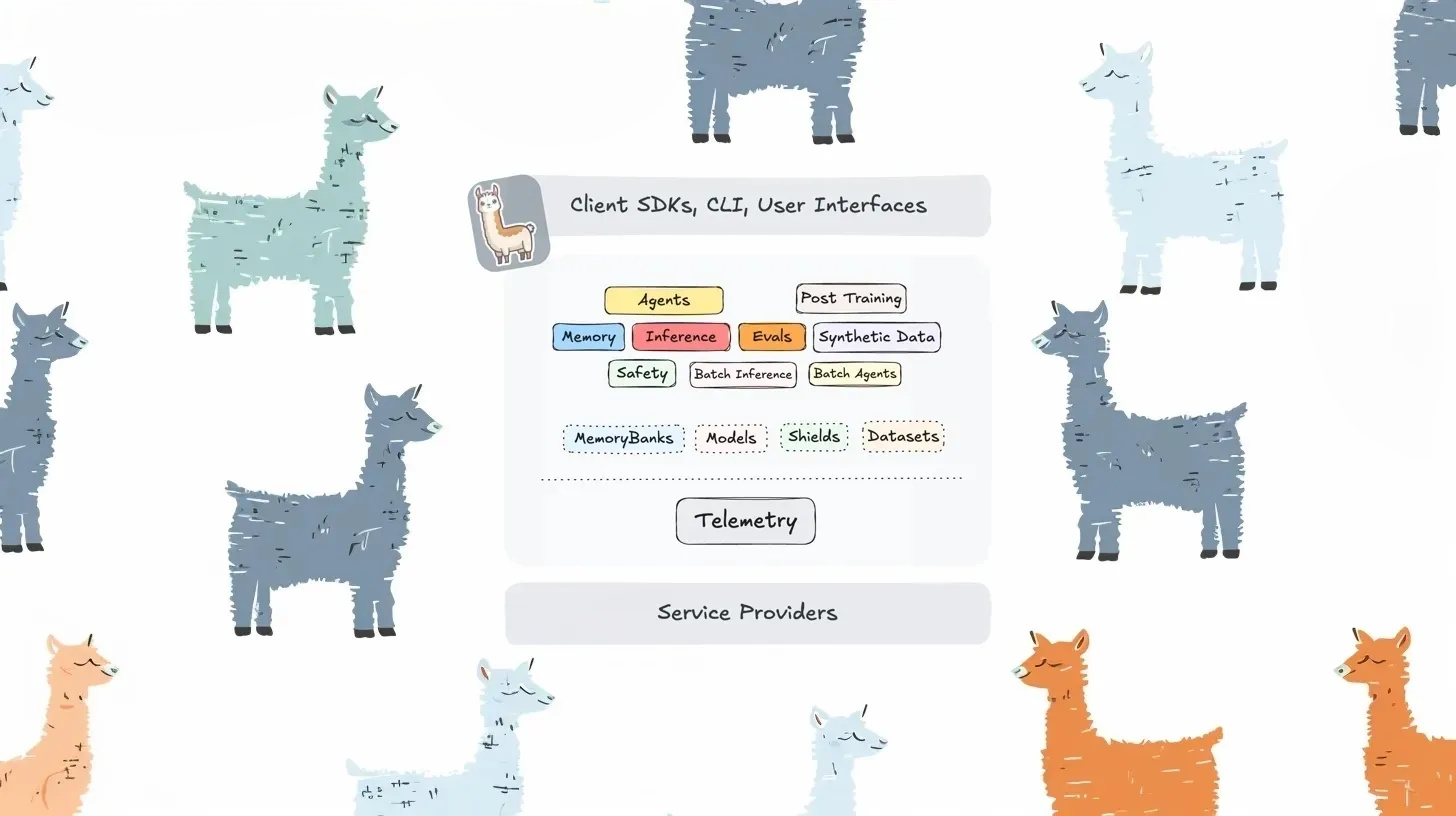Meta's Llama stack makes it easier to develop typical LLM use cases

Meta has launched a stable API release of its development platform called Llama-Stack 0.1.0 to help companies build AI applications using Llama models. The platform provides standardized building blocks and lets developers choose how they want to deploy their applications.
Llama-Stack serves as a universal platform for creating AI applications, with a particular focus on Meta's Llama models. The platform includes a standardized API layer that handles essential AI functions like inference, RAG (Retrieval Augmented Generation), agents, tools, security, evaluation, and telemetry.
One of the platform's key features is its flexible plugin system that works with various API providers. Developers can use remote services like Fireworks or AWS Bedrock, or run everything locally. Meta made sure to include at least one local option for each API, letting developers work without depending on external services.
Developers can use CLI tools and SDKs for Python, Node, iOS and Android to build their applications. Meta is also working on additional APIs for batch processing, fine-tuning, and generating synthetic data. The company has released several standalone sample applications to help developers get started.
Choosing the right deployment option
Meta offers several pre-configured versions of Llama-Stack to suit different needs. Developers can quickly get started with remote-hosted versions using an API key, while locally-hosted options provide more control. The company is also creating special on-device versions for iOS and Android to run on edge devices.
The platform lets developers use resources from different providers together seamlessly. For instance, they can run some Llama models through Fireworks and others through AWS Bedrock, all working together through Llama-Stack's unified inference API.
Meta says it created Llama-Stack to address a common challenge: AI developers require more than just a language model. They need to connect tools, integrate data sources, set up safeguards, and make sure LLM responses are properly grounded. Before Llama-Stack, developers had to piece together different tools and APIs, which made development more complex and expensive.
The platform takes a service-oriented approach, using REST APIs to create clean interfaces that work smoothly across different environments. Meta describes it as a ready-to-use solution for common deployment scenarios.
AI News Without the Hype – Curated by Humans
As a THE DECODER subscriber, you get ad-free reading, our weekly AI newsletter, the exclusive "AI Radar" Frontier Report 6× per year, access to comments, and our complete archive.
Subscribe nowAI news without the hype
Curated by humans.
- Over 20 percent launch discount.
- Read without distractions – no Google ads.
- Access to comments and community discussions.
- Weekly AI newsletter.
- 6 times a year: “AI Radar” – deep dives on key AI topics.
- Up to 25 % off on KI Pro online events.
- Access to our full ten-year archive.
- Get the latest AI news from The Decoder.